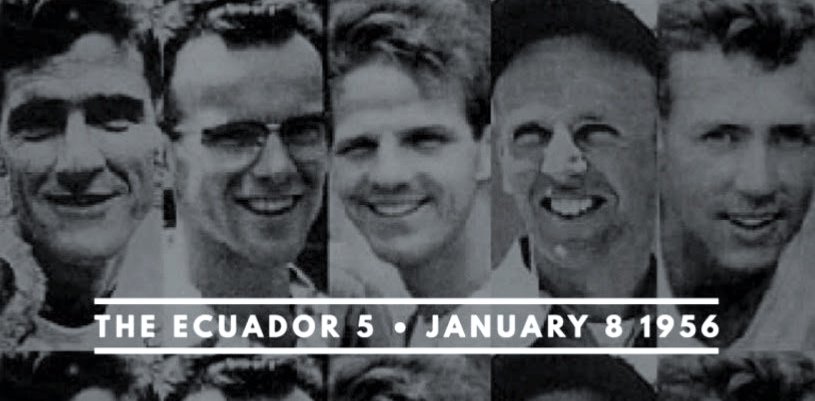The Occasional Inconvenience of Faith
Elizebeth & Valerie Elliot
If one is a disciple, one knows that he or she is under command. Do you get specifics on what’s next? I don’t always know what God wants me to do in the specific, but in general, I think we know full well His will, and on occasion, we get specifics.
What we must always apply is faith. I marvel to think about Shadrach, Meshach, and Abednigo. When facing trouble and possible death, their response was a ready one. A response built on a lifetime of trust and obedience, for they had written it on the tablet of their hearts. In essence they entrusted or gave their lives to their Commander. Here’s what they said:
If it be so, our God whom we serve is able to deliver us from the burning fiery furnace, and he will deliver us out of thine hand, O king. But if not, be it known unto thee, O king, that we will not serve thy gods, nor worship the golden image which thou hast set up.
How often we order our lives by convenience and logistics, using our wisdom and problem solving skills. This is a good thing and yields great results. There are times, however, when God is specific with your life but it doesn’t always seem to make sense. When it does make sense we affirm that God is wise because our own wisdom agrees. Yet what about the times when it seems foolish? Well, God is still wise but his wisdom goes higher than ours. If you surrender your life, he can do much in the mundane or the seemingly crazy. And the crazy is often unnatural, inconvenient, and it makes people wonder. Like forgiving a murderer, accepting that person into your family, and living in his neighborhood on purpose. How crazy!
Or moving your family in order to serve, just serve. Letting go of job, predictability, and title to be known as simply Servant. Makes no sense. Very inconvenient. Would God call us to inconvenience and loss? If so, why?
Recently, I read the book, Through Gates of Splendor, by Elisabeth Elliot which is about the five missionaries who gave their lives in the jungle of Ecuador at the hands of the Aucas, known today as the Waorani.
Left to right: Roger Youderian, Peter Flemming, Jim Elliot, Nate Saint, Ed McCully.
It is still spoken of to this day. Actually, recently I had a conversation with a young christian man who lives in a jungle town. He retold the story, along with the exciting fact that he is learning to build airplanes, which seems to be one of the many stories born from this tragedy.
Of the massacre, Elisabeth writes:
“It was interpreted according to the measure of one’s faith or faithlessness—full of meaning or empty. A triumph or a tragedy. An example of brave obedience or a case of fathomless foolishness.”
The young widows’ amazing response to the death of their husbands, fathers of their young children, was one of quiet peace. How stunning. It’s peace beyond understanding. She writes:
“The prayers of the widows themselves are for the Aucas. We look forward to the day when [the Aucas] will join us in Christian praise.”
Elisabeth Elliot did move into the “neighborhood” of the men who killed her husband and many of them came to know the Lord. We just can’t underestimate the power of forgiveness, obedience, and faith. But the Lord’s will doesn’t always come in a neat little package. She goes on to say:
“It is not the level of our spirituality that we can depend on. It is God and nothing less than God, for the work is God’s and the call is God’s and everything is summoned by Him and to His purposes, the whole scene, the whole mess, the whole package—our bravery and our cowardice, our love and our selfishness, our strengths and our weaknesses.”
So if you followed God and it looks messy, or you made a mess of it, you’re not in bad company. Just remember Moses, David, Paul, and Peter. Some days all we can ask of God is, “Oh Lord, bless this mess.”



